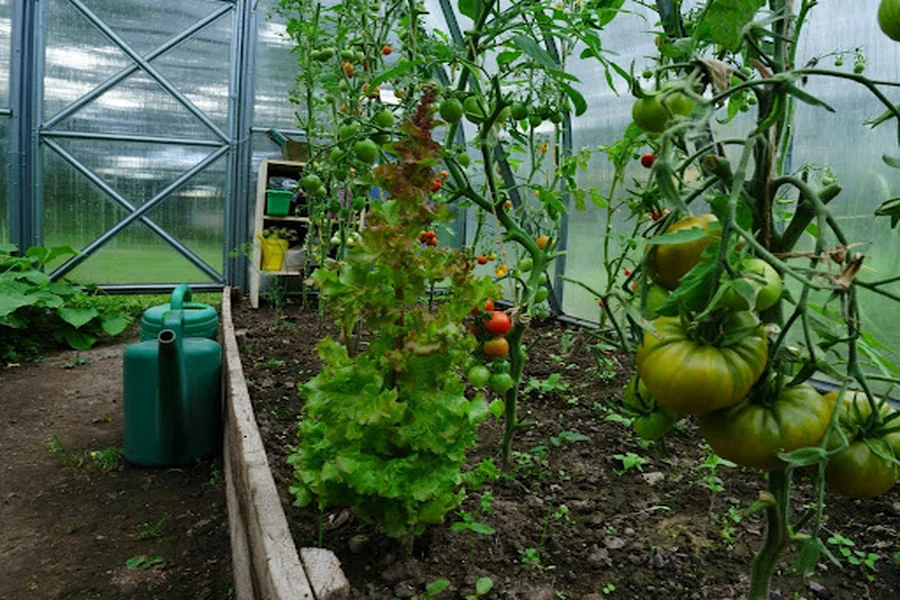Sustainable Living in a Fast-Paced World: Tips for Making It Work in Your Busy Life

Since we live in a fast-moving world, many people find the idea of sustainable living rather distant. Because we are always so busy, can we really focus on being more environmentally friendly? We often ask ourselves which is more important between work, family and social life.
Still, it is not a gimmick; we need to adopt sustainable living for our coming days. Role-playing makes it possible for us to live sustainably every day, even if it is very convenient. Even simple adjustments such as cutting waste or buying local, can bring big results. Let’s look at methods that help people live sustainably, despite the busy and chaotic lives most of us live.
Understanding Sustainable Living
Trying to live sustainably means you don’t waste resources or harm nature. It deals with making sure our needs and the health of the world are balanced. Some people think sustainable living is too difficult, especially since the world is moving so fast. Despite what it seems, including eco-friendly habits in our home is not as tough as it may look.
The three main ideas behind sustainable living are to waste less, save resources and help support ethical activities. A good way to start is by recycle, compost and avoid buying things that are excessively packaged. Such small routines can have a big effect in the long run.
Conserving resources translates to using less energy and water. Basic steps like leaving the lights off, using less power and repairing dripping faucets play a big role in these efforts. Because of these changes, we use fewer resources and save money yearly.
Adopting ethics such as buying at local shops and choosing sustainably sourced items helps to protect the environment. As a result, the local economy grows and the carbon footprint from long-distance shipping cuts down.
We realize the challenge of balancing a sustainable lifestyle with busy schedules. For instance, if you’re closing on house and don’t have pay stubs in time for closing, financial stress can take priority over eco-conscious decisions. However, setting realistic goals can help. You might start by committing to one sustainable practice per week or month.
Sustainability even extends to how we celebrate and gather. Choosing reusable decorations, minimizing waste, or opting for safer celebration options—such as using a fireworks tube rather than traditional fireworks—can make a difference in reducing environmental impact.
Over time, these small shifts add up, creating a culture of sustainability in our lives. Adopting sustainable living concepts helps us prioritize the environment while navigating our fast-paced lifestyles. Embracing these practices lays the foundation for a healthier future for ourselves and generations to come.
The Challenges of a Fast-Paced World
Being eco-friendly in a world that moves quickly is not simple. While wanting to make environmentally friendly decisions, we also need to deal with limited time and large customer demands.
Time Management and Prioritization
Time management plays a crucial role in sustainable living. With many things to do, people sometimes go for convenience over sustainable alternatives. Setting a particular time for doing sustainable tasks, for example meal prep or buying from local sellers, helps us do them regularly. Taking simple steps such as spending a weekday sorting our trash or checking up on new ways to live environmentally, gives us motivation without causing too much stress.
The Impact of Consumerism
Consumerism significantly impacts our ability to live sustainably. Because we see marketing everywhere and products are available most of the time, buying has become more important than thinking about what is right and wrong. We can solve this by caring more about our habits and choosing to live without a lot of things. If you go for quality, support your community’s businesses and reduce use of single-use products, you can live more sustainably. If we take time before shopping, we can think about if buy we need to buy this and how it might change things.
Practical Tips for Sustainable Living

Sustainable living is achievable, even in a fast-paced world. Implementing eco-friendly habits and balancing convenience with sustainability makes a positive impact.
Eco-Friendly Habits to Adopt
- Use reusable bags for shopping to reduce plastic waste.
- Compost food scraps to minimize landfill contributions.
- Choose energy-efficient appliances that lower electricity consumption.
- Reduce water usage by fixing leaks and taking shorter showers.
- Opt for public transport or biking when possible to decrease carbon footprints.
Adopting these habits not only conserves resources but also aligns with our commitment to a healthier planet.
Balancing Convenience and Sustainability
We can prioritize sustainability without compromising convenience by making small adjustments.
- Buy locally sourced products for fresher options and reduced shipping emissions.
- Plan meals ahead to avoid impulse purchases and food waste.
- Schedule dedicated times for sustainable tasks to integrate them into daily routines.
- Evaluate products before buying, opting for minimal packaging and ethical brands.
By prioritizing these strategies, we can effectively navigate our busy lives while making sustainable choices.
The Role of Community and Support
People supporting and participating in their local community can greatly help sustainability. working with local groups and people who share your goals brings accountability and motivation. The practice of sustainable habits by a group helps everyone become more motivated and let them share useful supplies, tips and ideas.
Removing trash from the community or buying from local vendors at the market is a good way to both recycle and support people in your area. They inform people and also encourage everyone to feel part of one group. By sharing our experiences, we can support each other and celebrate minor steps toward living sustainably which becomes less challenging.
Building networks enhances accessibility to sustainability resources. We have the opportunity to use the same garden, share a compost spot or carpool with our friends which lowers what each person has to do. Since we work share the responsibility, it is easier to overcome the challenges of using eco-friendly practices together.
You can receive support by getting involved in sustainability groups present on social media and online sites. Being part of these places allows us to get helpful information, practical tips and encouragement. Because of this, we are able to build a positive virtual group where sustainability is discussed, making us even more dedicated to living eco-friendly.
In addition, local government efforts to encourage sustainability can help people with the needed advice and supplies. Talking to community leaders helps identify the needs of the area and supports steps that help protect the environment.
Keeping community and support close simply makes it easier for us to work on sustainability every day. If we join forces, we can help make sustainable choices standard and this will have a great impact on the environment and the years to come.







